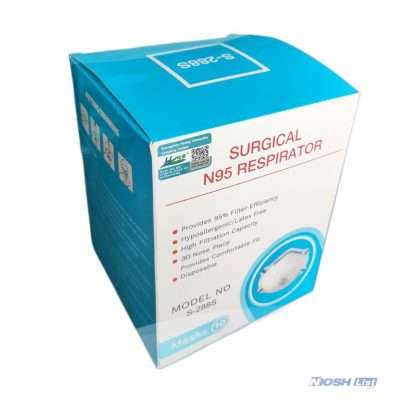How do respirators N95 and KN95 compare to one another? What is the difference between these breathing apparatuses? What are the benefits of using a N95 or KN95 mask? What’s the difference between N95 and KN95 masks? Continue reading to learn more about this frequent question…
N95 and KN95 masks are two of the most prevalent varieties of accessible face masks. However, what differentiates them? The CDC has the answer.
The Significance of Masks
Masks come in two varieties: N95 (non-oil) and KN95 (oil/vapor). The ratings for these masks indicate how well they protect against solid particles. Despite appearances, the distinction between these two types of masks is crucial. You can quickly pollute your surroundings with oil mist if you use an oil-based mask without first adequately treating it with powder.
The Security Varieties
At first look, it may appear that N95 and KN95 NIOSH-certified masks offer the same level of protection. That is not always the case, however. Both are utilized in occupational contexts to protect against airborne pollutants, but their intended functions differ. If you operate with hazardous products or in an industrial setting where exposure to pollutants is likely, selecting a mask is crucial. However, what do the titles mean? 4
The Filtration Variations
There are a variety of factors at play when it comes to removing airborne contaminants. The N95 and KN95 masks differ in their filtration procedures, so let’s examine how each one operates.
What is the difference between N95 and KN95 respirators? Both types of masks can protect the lungs from inhaling airborne particles such as dust, pollen, and smoke, which can aggravate breathing problems such as asthma and other respiratory illnesses. Here is an explanation of these two sorts of masks, as well as general guidance on how to choose and when to wear a mask!

KN95 Protects Against Cigarette Smoke
If you wish to protect yourself from particulate matter (PM) from sources other than wildfire smoke, you should purchase a respirator with a N95 or P100 filter that has been authorized by the National Institute for Occupational Safety and Health (NIOSH). There are variances between the filters that may affect your health, despite their similarities. Learn more about the option that will work best for you.
CDC Recommendations Regarding the Difference Between N95 and Kn95 Masks
N95 and KN95 masks are two types of face masks that can be worn in public health and medical situations to lower the risk of infection. If you work with patients with compromised immune systems, it is essential to grasp the differences between these masks and how to use them safely and effectively. The differences between N95 and KN95 masks are explained in detail below.
The CDC recommends that if you are going to wear a mask, it be a N95-rated facemask. A mask with a N95 grade will block 95 percent of particles with a diameter of 0.3 microns or greater.



